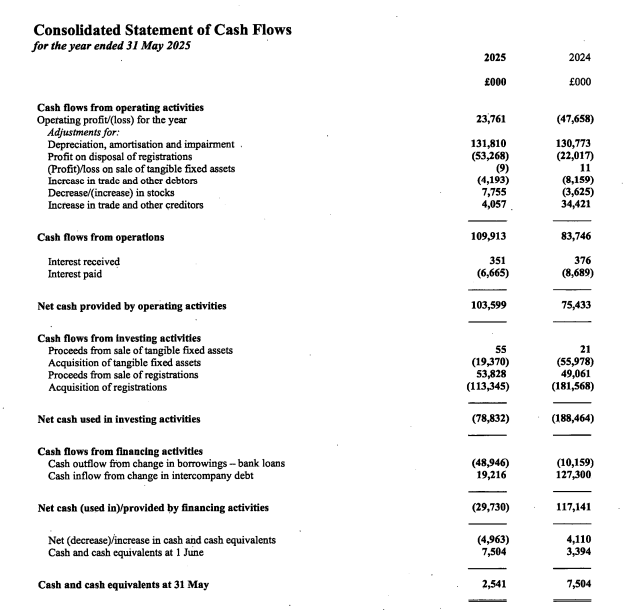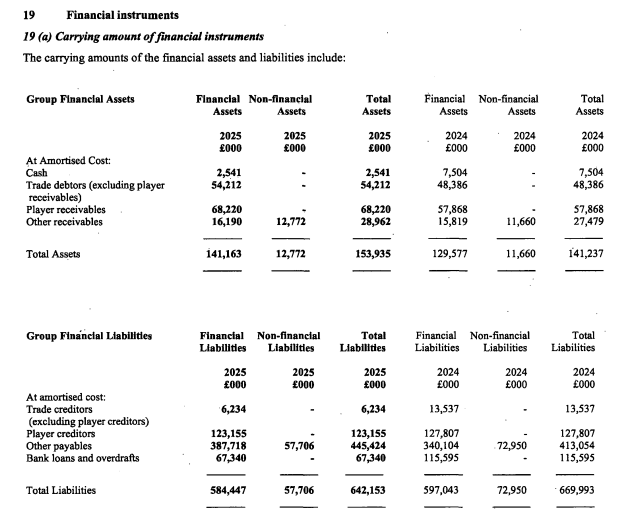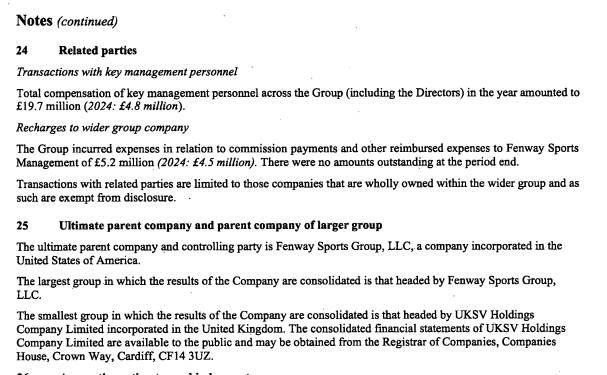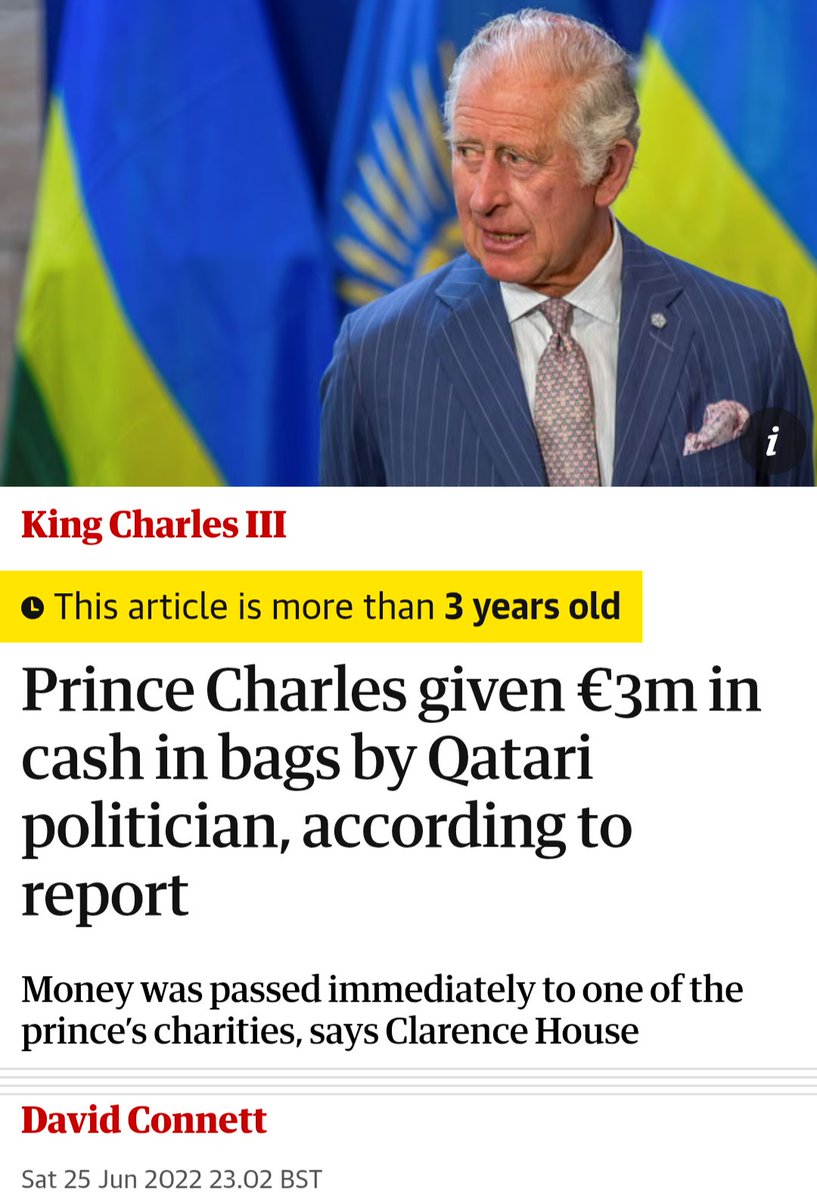Recent well liked threads
Jul 22, 2024
Read 10 tweets
🧵1/ 🇵🇸🇮🇱 3 MINUTES OF HELL: A MOMENT BY MOMENT ACCOUNT OF THE KING DAVID HOTEL BOMB EXPLOSION & ITS IMMEDIATE AFTERMATH. (JULY 22, 1946)
Today is the anniversary of the infamous King David Hotel Bombing perpetrated by the jewish Irgun terrorist gang, led by future Prime Minister of Israel, Menachem Begin. The "bomb" was 350 kg of TNT packed into 7 large milk canisters.
To remember this occasion, I'm posting the chapter of the book "By Blood & Fire," that chronicles the exact moments of the bombing in excrutiating blow-by-blow detail. It's Chapter 25, titled "12:27 PM - 12:40 PM."
The human cost was enormous and grisly. You've been warned. It reminds me of 9/11 and also the horror the Gazans face every single day.
Today is the anniversary of the infamous King David Hotel Bombing perpetrated by the jewish Irgun terrorist gang, led by future Prime Minister of Israel, Menachem Begin. The "bomb" was 350 kg of TNT packed into 7 large milk canisters.
To remember this occasion, I'm posting the chapter of the book "By Blood & Fire," that chronicles the exact moments of the bombing in excrutiating blow-by-blow detail. It's Chapter 25, titled "12:27 PM - 12:40 PM."
The human cost was enormous and grisly. You've been warned. It reminds me of 9/11 and also the horror the Gazans face every single day.

🧵2/ Page 220: "the pressure burst the hearts, livers and lungs of the clerks working on the floor above."
Fire alarms clanged in the basement. Campbell and Hadingham rounded the corner of the service passageway and ran into the main corridor. The Regence was fifty yards straight ahead.
The acid ate through the wood plug and dripped onto the detonator at 12:37, six minutes before schedule. The explosion of the fulminate in the blasting cap lasted one twenty-five-thousandth of a second. A full second later the TNT exploded.
Three hundred and fifty kilograms of TNT became 250,000 liters of hot gas. At the center of the explosion, the gas expanded at a velocity of 160,000 MPH, heating the air to over 3,000'C. and exerting a pressure of 500,000 pounds per square inch, thirty-four thousand times normal atmospheric pressure, the pressure burst the hearts, livers and lungs of the clerks working on the floor above.
A bright orange light flashed at the end of the basement corridor, burst into flames and swept toward Campbell and Hadingham. A bang stabbed their eardrums. A wave of scorching air slammed Campbell against the wall and flung him onto the floor. Hot blackness smothered him.
Hadingham somersaulted into the air. Jagged pieces of iron pelted him, ripping his uniform and slicing wounds in his hands and arms. "I've seen this happen to my men and I've scraped up bits of bone and flesh afterward," he thought. "Now it's happening to me. In a second I'll be nothing but bloody

Fire alarms clanged in the basement. Campbell and Hadingham rounded the corner of the service passageway and ran into the main corridor. The Regence was fifty yards straight ahead.
The acid ate through the wood plug and dripped onto the detonator at 12:37, six minutes before schedule. The explosion of the fulminate in the blasting cap lasted one twenty-five-thousandth of a second. A full second later the TNT exploded.
Three hundred and fifty kilograms of TNT became 250,000 liters of hot gas. At the center of the explosion, the gas expanded at a velocity of 160,000 MPH, heating the air to over 3,000'C. and exerting a pressure of 500,000 pounds per square inch, thirty-four thousand times normal atmospheric pressure, the pressure burst the hearts, livers and lungs of the clerks working on the floor above.
A bright orange light flashed at the end of the basement corridor, burst into flames and swept toward Campbell and Hadingham. A bang stabbed their eardrums. A wave of scorching air slammed Campbell against the wall and flung him onto the floor. Hot blackness smothered him.
Hadingham somersaulted into the air. Jagged pieces of iron pelted him, ripping his uniform and slicing wounds in his hands and arms. "I've seen this happen to my men and I've scraped up bits of bone and flesh afterward," he thought. "Now it's happening to me. In a second I'll be nothing but bloody


🧵3/ Page 221: "bodies falling down off the roof and winging through the air."
pieces." As his wife's face flashed in front of him, he smacked into a wall farther down the corridor.
The blast was equivalent in force to a direct hit from a 500 kilogram aerial bomb. The churns disappeared and the pillars in the Regence supporting the Secretariat disintegrated.
The Secretariat became alive. Its outer stone walls bulged, swayed, convulsed inward and, with a thunderous roar, vanished into sheets of fame and clouds of smoke. The roof shot into the air and plummeted to earth like an elevator out of control, pitching the sunbathing ATS women into the garden and crushing those on whom it landed.
An elliptical shock wave swept into Julian's Way from the center of the explosion. Those standing close to the hotel felt the blast before they heard it. First they were slammed by a thrust coming from the blast and then, a split-second later, a reverse pressure, a suction pulling them toward the hotel.
The suction ripped off clothes, tore rings from fingers and watches from wrists. It sucked the window panes out of nearby buildings, spewing shards of glass into the street. Automobiles rolled over, small trees were uprooted, and cypresses and palms bent backward as if battered by hurricane winds. Ivan Phillips' driver was blown onto the metal spears of the YMCA's ornamental gate.
In the courtyard between the Secretariat and the canteen the shock wave pitched Mohammed the messenger backward and Jerry Cornes forward onto the ground. Cornes looked up and saw "bodies falling down off the roof and winging through the air."
The shock through wave shook the "milk truck" standing in the service driveway and tossed Hamburger against a wall, concussing him. Across the street from the Secretariat it blew in the door and shattered the windows of Meyer Levin's office. One of his cameramen raced into the street and began filming.
Lieutenant Tilly was standing nearly opposite Salameh's store when he heard a rumbling like that of a subway train approaching a station. The train scemed to get closer, the rumbling became louder and louder.
The King David was turned into a gigantic cannon and Julian's Way was its field of fire. Small pieces of concrete shot out of the smoke at the speed of sound, spraying the street like buckshot. Large concrete blocks flew into the air at speeds of up to a hundred miles an hour. They punched holes in the roof of the Signals Annex, smashing cars, blasting craters in the street and burying half the canteen. Many of the Arab bus passengers who had been wounded by the first Irgun explosion were killed by the second one.
Debris showered Julian's Way. Sheets of paper from top-secret files fluttered in and out of the smoke like white birds; slivers of glass shot from shattering windows; chunks of cement crashed into pedestrians; bodies were blown into the street.
pieces." As his wife's face flashed in front of him, he smacked into a wall farther down the corridor.
The blast was equivalent in force to a direct hit from a 500 kilogram aerial bomb. The churns disappeared and the pillars in the Regence supporting the Secretariat disintegrated.
The Secretariat became alive. Its outer stone walls bulged, swayed, convulsed inward and, with a thunderous roar, vanished into sheets of fame and clouds of smoke. The roof shot into the air and plummeted to earth like an elevator out of control, pitching the sunbathing ATS women into the garden and crushing those on whom it landed.
An elliptical shock wave swept into Julian's Way from the center of the explosion. Those standing close to the hotel felt the blast before they heard it. First they were slammed by a thrust coming from the blast and then, a split-second later, a reverse pressure, a suction pulling them toward the hotel.
The suction ripped off clothes, tore rings from fingers and watches from wrists. It sucked the window panes out of nearby buildings, spewing shards of glass into the street. Automobiles rolled over, small trees were uprooted, and cypresses and palms bent backward as if battered by hurricane winds. Ivan Phillips' driver was blown onto the metal spears of the YMCA's ornamental gate.
In the courtyard between the Secretariat and the canteen the shock wave pitched Mohammed the messenger backward and Jerry Cornes forward onto the ground. Cornes looked up and saw "bodies falling down off the roof and winging through the air."
The shock through wave shook the "milk truck" standing in the service driveway and tossed Hamburger against a wall, concussing him. Across the street from the Secretariat it blew in the door and shattered the windows of Meyer Levin's office. One of his cameramen raced into the street and began filming.
Lieutenant Tilly was standing nearly opposite Salameh's store when he heard a rumbling like that of a subway train approaching a station. The train scemed to get closer, the rumbling became louder and louder.
The King David was turned into a gigantic cannon and Julian's Way was its field of fire. Small pieces of concrete shot out of the smoke at the speed of sound, spraying the street like buckshot. Large concrete blocks flew into the air at speeds of up to a hundred miles an hour. They punched holes in the roof of the Signals Annex, smashing cars, blasting craters in the street and burying half the canteen. Many of the Arab bus passengers who had been wounded by the first Irgun explosion were killed by the second one.
Debris showered Julian's Way. Sheets of paper from top-secret files fluttered in and out of the smoke like white birds; slivers of glass shot from shattering windows; chunks of cement crashed into pedestrians; bodies were blown into the street.

May 27, 2025
Read 2 tweets
Breaking — Journalist @choeshow was just assaulted by trans Antifa activists outside of Seattle City Hall.
@SeattlePD made two arrests.
The incident occurred ahead at the pro-Christian rally calling for Mayor Harrell’s resignation.
@SeattlePD made two arrests.
The incident occurred ahead at the pro-Christian rally calling for Mayor Harrell’s resignation.
I am at the event reporting for @TPostMillennial and witnessed the attack.
Violent protesters surrounded Jonathan Choe and made physical contact, prompting him to defend himself.
Violent protesters surrounded Jonathan Choe and made physical contact, prompting him to defend himself.
Dec 6, 2025
Read 2 tweets
@oku_yungx Watch this till the end. Here's 3 businesses you can start with just one million naira.
@oku_yungx I understand you, it's easier said than done. But there are still one or two things to learn from this, provided you are really determined to take that bold step.
Mar 3
Read 9 tweets
🚨BREAKING: Claude can now build a complete YouTube growth strategy that takes channels from 0 to monetization in 90 days.
7 prompts to go from unknown creator to trusted authority in your niche:
(Save this before it goes viral)

7 prompts to go from unknown creator to trusted authority in your niche:
(Save this before it goes viral)


1. Channel Strategy Architect
"Act like a YouTube growth strategist. Analyze my niche, target audience, and content goals. Design a complete channel strategy including positioning, content pillars, upload frequency, and the fastest path to 1,000 subscribers and monetization. Details: [paste]."
"Act like a YouTube growth strategist. Analyze my niche, target audience, and content goals. Design a complete channel strategy including positioning, content pillars, upload frequency, and the fastest path to 1,000 subscribers and monetization. Details: [paste]."
2. Viral Video Idea Generator
"Act like a YouTube content researcher. Generate 20 high-potential video ideas for [niche] based on search demand, trending topics, and audience pain points. For each idea, include a working title, hook angle, and why it has viral potential."
"Act like a YouTube content researcher. Generate 20 high-potential video ideas for [niche] based on search demand, trending topics, and audience pain points. For each idea, include a working title, hook angle, and why it has viral potential."
Mar 4
Read 8 tweets
If WhatsApp alone is using 10+ GB on your phone, do this NOW.
I hope this helps you as it has helped me:
I hope this helps you as it has helped me:
1. Find the real storage hogs inside WhatsApp
- Open WhatsApp → Settings → Storage and Data → Manage Storage
You'll see:
- Total space WhatsApp is using
- Chats sorted by size (groups usually top the list)
Tap the biggest chats → Select multiple items → delete:
- Old videos
- Memes
- Forwarded junk
- Voice notes you'll never replay
Just cleaning 3–5 chats can free gigabytes.
- Open WhatsApp → Settings → Storage and Data → Manage Storage
You'll see:
- Total space WhatsApp is using
- Chats sorted by size (groups usually top the list)
Tap the biggest chats → Select multiple items → delete:
- Old videos
- Memes
- Forwarded junk
- Voice notes you'll never replay
Just cleaning 3–5 chats can free gigabytes.
2. Stop auto-downloading every photo and video.
This is the main reason WhatsApp explodes in size.
- Go to Settings → Storage and Data → Media Auto-Download
- Set all to:
- When using mobile data: No media
- When connected on Wi-Fi: Choose only what you really need
- When roaming: No media
From now on, tap to download only what matters. Your storage stops growing on autopilot.
This is the main reason WhatsApp explodes in size.
- Go to Settings → Storage and Data → Media Auto-Download
- Set all to:
- When using mobile data: No media
- When connected on Wi-Fi: Choose only what you really need
- When roaming: No media
From now on, tap to download only what matters. Your storage stops growing on autopilot.
Mar 4
Read 10 tweets
Un consejero matrimonial jubilado reveló qué hace que las esposas pierdan el respeto y la atracción hacia el marido que alguna vez persiguieron.
Dijo: "Normalmente son 8 comportamientos silenciosos los que los hombres repiten diariamente".
Todo hombre debería escuchar esto...
Dijo: "Normalmente son 8 comportamientos silenciosos los que los hombres repiten diariamente".
Todo hombre debería escuchar esto...
1. La fuga lentamente de los estándares personales.
Deja de vestirse con intención.
Deja que su cuerpo se ablande sin resistencia. Abandona aficiones e intereses que antes lo hacían interesante.
Esto no es vanidad. Es el mensaje silencioso que transmite: «Ya no creo que deba merecer tu atracción. Espero que me desees a pesar de todo».
La atracción no responde al derecho. Responde al esfuerzo.
Deja de vestirse con intención.
Deja que su cuerpo se ablande sin resistencia. Abandona aficiones e intereses que antes lo hacían interesante.
Esto no es vanidad. Es el mensaje silencioso que transmite: «Ya no creo que deba merecer tu atracción. Espero que me desees a pesar de todo».
La atracción no responde al derecho. Responde al esfuerzo.
2. Deja el liderazgo emocional.
Cuando surge un conflicto, él se retrae. Cuando ella se emociona, él se pone a la defensiva o lo ignora.
Él espera que ella inicie conversaciones difíciles, aborde tensiones, gestione el clima emocional del hogar.
Esta abdicación silenciosa la coloca en el rol masculino de gestión emocional.
Con el tiempo, ella deja de verlo como su roca y comienza a verlo como otro dependiente.
Cuando surge un conflicto, él se retrae. Cuando ella se emociona, él se pone a la defensiva o lo ignora.
Él espera que ella inicie conversaciones difíciles, aborde tensiones, gestione el clima emocional del hogar.
Esta abdicación silenciosa la coloca en el rol masculino de gestión emocional.
Con el tiempo, ella deja de verlo como su roca y comienza a verlo como otro dependiente.
Mar 5
Read 5 tweets
Mar 5
Read 10 tweets
Adeus LinkedIn em 2026.
Adeus Upwork em 2026.
Adeus Indeed em 2026.
Passei anos me candidatando. Quase nenhuma entrevista.
Meu irmão passou apenas algumas horas nesses 8 sites e recebeu várias ofertas de trabalho remoto.
Use estas 8 plataformas para encontrar empresas que realmente querem contratar você:
Adeus Upwork em 2026.
Adeus Indeed em 2026.
Passei anos me candidatando. Quase nenhuma entrevista.
Meu irmão passou apenas algumas horas nesses 8 sites e recebeu várias ofertas de trabalho remoto.
Use estas 8 plataformas para encontrar empresas que realmente querem contratar você:
1. Kickresume
Se seu currículo não passa pelos filtros ATS, os recrutadores nunca chegam a vê-lo.
A maioria das candidaturas é eliminada antes mesmo de um humano abrir o CV.
Use o analisador gratuito da Kickresume para verificar seu currículo, identificar pontos fracos e otimizar para sistemas de recrutamento.
👉 kickresume.com/pt/resume-opti…
Melhore seu CV hoje e aumente suas chances de conseguir entrevistas.
Se seu currículo não passa pelos filtros ATS, os recrutadores nunca chegam a vê-lo.
A maioria das candidaturas é eliminada antes mesmo de um humano abrir o CV.
Use o analisador gratuito da Kickresume para verificar seu currículo, identificar pontos fracos e otimizar para sistemas de recrutamento.
👉 kickresume.com/pt/resume-opti…
Melhore seu CV hoje e aumente suas chances de conseguir entrevistas.
2. Remote. co
Se você está começando no mercado remoto, esta é uma das primeiras plataformas que vale a pena explorar.
Aqui você pode descobrir empresas remotas que estão contratando talentos do mundo todo.
👉 remote.co
Se você está começando no mercado remoto, esta é uma das primeiras plataformas que vale a pena explorar.
Aqui você pode descobrir empresas remotas que estão contratando talentos do mundo todo.
👉 remote.co
Mar 5
Read 3 tweets
I have been screaming about this gap in cost-effective US anti-drone capabilities for three years on X.
Only when reality came along and B*tch slapped the US Military that their Big/Expensive/Few weapons have failed the cost-effectiveness in combat test did they notice.
The d*mned fools.
1/2
Only when reality came along and B*tch slapped the US Military that their Big/Expensive/Few weapons have failed the cost-effectiveness in combat test did they notice.
The d*mned fools.
1/2
And the US military's ONLY response is to spasm buy more of the cost-ineffective weapons like the Patriot.
When they really need is AA-guns like the old M163 Vulcan to deal with drones.
The US defense industrial complex is a threat to national security, when it comes to defeating drones.
2/2
When they really need is AA-guns like the old M163 Vulcan to deal with drones.
The US defense industrial complex is a threat to national security, when it comes to defeating drones.
2/2

@threadreaderapp unroll
Mar 5
Read 8 tweets
Thread for Cashback Lovers 🧾💳
Save anywhere from 5% to 25% (depending on spend category) mobile bills, utilities, insurance, online shopping, dining, groceries.
Here’s the clean “right card → right spend” system 👇
Cashback isn’t magic. It’s mapping.
Most people use 1 card for everything and lose rewards daily.
This thread = a simple stack where each card has a job. ✅
Save anywhere from 5% to 25% (depending on spend category) mobile bills, utilities, insurance, online shopping, dining, groceries.
Here’s the clean “right card → right spend” system 👇
Cashback isn’t magic. It’s mapping.
Most people use 1 card for everything and lose rewards daily.
This thread = a simple stack where each card has a job. ✅
Card #1
SBI PhonePe Select = Bills/Insurance beast ⚡🛡️
Best when your month has fixed spends like:
✅ Recharges
✅ Utilities / Bill payments
✅ Insurance
✅ Travel (PhonePe categories)
📌 Rewards:
• 10 RP / ₹100 on select categories (PhonePe)
• Max 2000 RP / calendar month
• Online spends: 5 RP / ₹100 (Max 2000 RP / month)
How to use SBI PhonePe Select properly (so you don’t waste limits)
✅ Route bills/insurance via PhonePe in eligible categories
✅ Watch the monthly cap (2000 RP)
✅ Use it as your “boring spends” card.....that’s where it prints value 💰
SBI PhonePe Select = Bills/Insurance beast ⚡🛡️
Best when your month has fixed spends like:
✅ Recharges
✅ Utilities / Bill payments
✅ Insurance
✅ Travel (PhonePe categories)
📌 Rewards:
• 10 RP / ₹100 on select categories (PhonePe)
• Max 2000 RP / calendar month
• Online spends: 5 RP / ₹100 (Max 2000 RP / month)
How to use SBI PhonePe Select properly (so you don’t waste limits)
✅ Route bills/insurance via PhonePe in eligible categories
✅ Watch the monthly cap (2000 RP)
✅ Use it as your “boring spends” card.....that’s where it prints value 💰
Card #2
Jupiter = E-commerce GOAT (for points lovers) 🛒✈️
Every time you shop on:
🛒 Amazon | 👗 Myntra | 📦 Flipkart | 🛍️ Tata Cliq
💄 Nykaa | 👕 Westside | 📱 Croma
Apply Now: jptr.onelink.me/TOMp/550962897f
Use code ttbtYc while applying 🎬 Get 1 year Amazon Prime FREE
…you earn ~8% in Air India Maharaja Points (on spends up to ₹15,000/month) or burn for Amazon Pay vouchers (~10%)
Jupiter pro tip (caps matter here)
There’s a transaction-wise cap:
📌 Eligible amount capped at ₹2,000 per transaction
→ which means plan/split spends smartly so you don’t lose points on big single payments.
🎯 Redemption path:
✈️ Use points for Air India flights
OR
🧾 burn for Amazon Pay vouchers (~10%) (your utility/bill weapon again)
Jupiter = E-commerce GOAT (for points lovers) 🛒✈️
Every time you shop on:
🛒 Amazon | 👗 Myntra | 📦 Flipkart | 🛍️ Tata Cliq
💄 Nykaa | 👕 Westside | 📱 Croma
Apply Now: jptr.onelink.me/TOMp/550962897f
Use code ttbtYc while applying 🎬 Get 1 year Amazon Prime FREE
…you earn ~8% in Air India Maharaja Points (on spends up to ₹15,000/month) or burn for Amazon Pay vouchers (~10%)
Jupiter pro tip (caps matter here)
There’s a transaction-wise cap:
📌 Eligible amount capped at ₹2,000 per transaction
→ which means plan/split spends smartly so you don’t lose points on big single payments.
🎯 Redemption path:
✈️ Use points for Air India flights
OR
🧾 burn for Amazon Pay vouchers (~10%) (your utility/bill weapon again)
Mar 5
Read 4 tweets
🚨 ¿Cómo cerró 2025 el principal motor del crecimiento: la inversión?
Con datos del @INEGI_INFORMA, la Inversión Fija Bruta (#IFB) acumuló 16 meses consecutivos de caídas anuales, aunque mostró un ligero avance mensual.
A pesar que la contracción anual en diciembre fue la menor en lo que va del año, no se había observado una racha de 16 caídas continuas desde 2013 (sin considerar 2018 - 2021, periodo de la pandemia, cuando la inversión cayó 28 meses consecutivos).
📄 Comunicado #INEGI: bit.ly/3OMMphK
Con datos del @INEGI_INFORMA, la Inversión Fija Bruta (#IFB) acumuló 16 meses consecutivos de caídas anuales, aunque mostró un ligero avance mensual.
A pesar que la contracción anual en diciembre fue la menor en lo que va del año, no se había observado una racha de 16 caídas continuas desde 2013 (sin considerar 2018 - 2021, periodo de la pandemia, cuando la inversión cayó 28 meses consecutivos).
📄 Comunicado #INEGI: bit.ly/3OMMphK
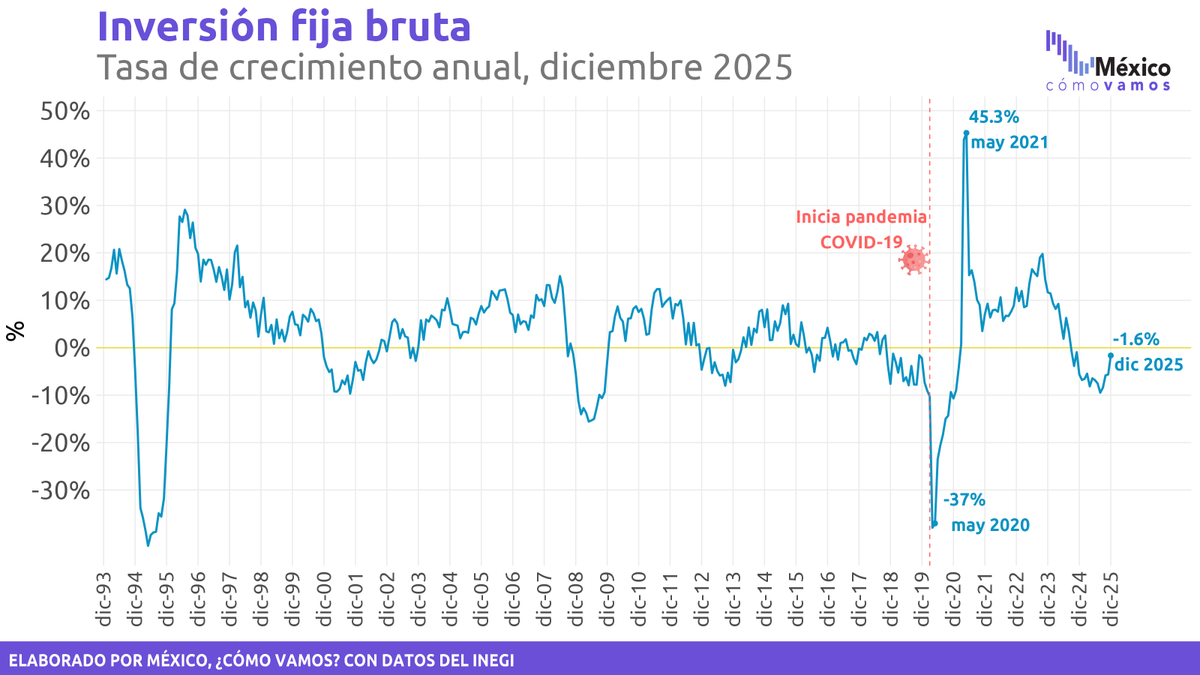
🔎 ¿Qué explica este desempeño?
🏗️ Construcción: en diciembre se registró un avance en su comparación anual de 4.1%. El crecimiento se explicó por el componente residencial que creció 14.2%, mientras que el no residencial acumula 16 caídas anuales consecutivas.
🚛 Maquinaria y equipo: registró una caída de (-)7.9% a tasa anual, marcando el 13º mes consecutivo de contracciones anuales. Al interior, tanto el componente nacional como importado cayeron en su comparación anual y acumulan más de un año de caídas.
🏗️ Construcción: en diciembre se registró un avance en su comparación anual de 4.1%. El crecimiento se explicó por el componente residencial que creció 14.2%, mientras que el no residencial acumula 16 caídas anuales consecutivas.
🚛 Maquinaria y equipo: registró una caída de (-)7.9% a tasa anual, marcando el 13º mes consecutivo de contracciones anuales. Al interior, tanto el componente nacional como importado cayeron en su comparación anual y acumulan más de un año de caídas.
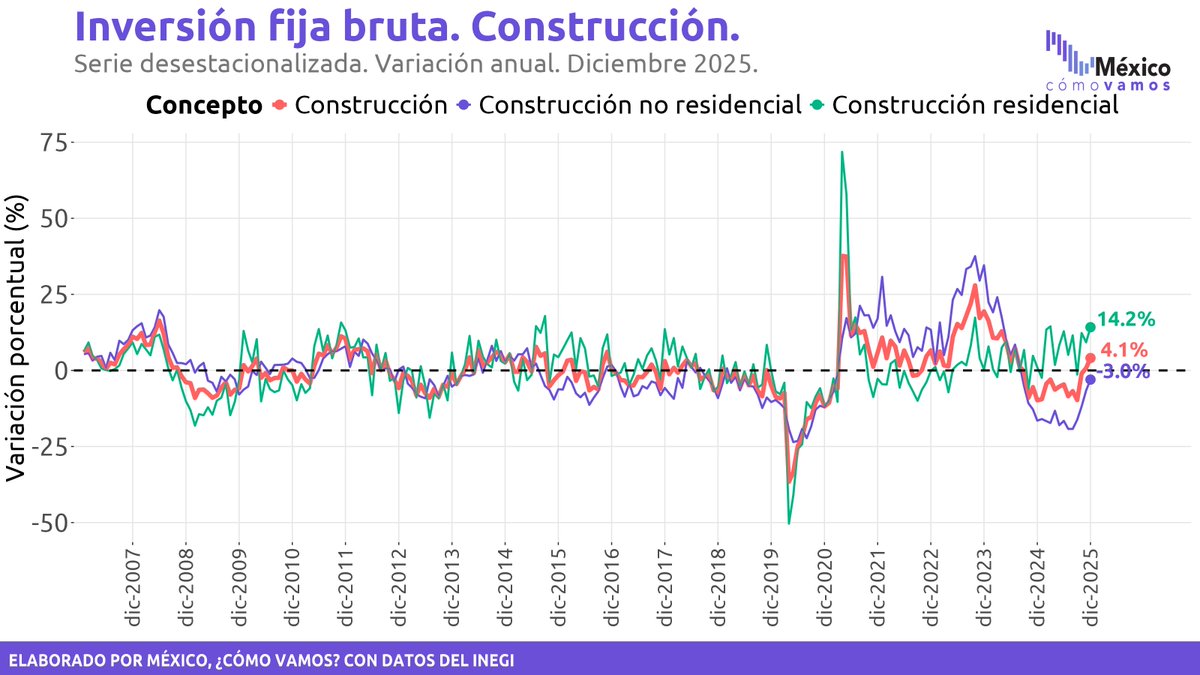
👉🏼 Frente a noviembre de 2025, la inversión total y el componente de construcción crecieron 0.5% y 0.9% respectivamente. Por otro lado, la inversión en maquinaria y equipo registró una disminución mensual (-0.3%) debido al rubro nacional, el importado creció 0.6% explicado en gran parte por inversión en equipo de transporte.
📊 Este indicador refleja el comportamiento de la inversión en activos fijos en el corto plazo. Por eso, es clave que crezca tanto en términos mensuales como anuales: es un reflejo de qué tan favorables son las condiciones para invertir.
📊 Este indicador refleja el comportamiento de la inversión en activos fijos en el corto plazo. Por eso, es clave que crezca tanto en términos mensuales como anuales: es un reflejo de qué tan favorables son las condiciones para invertir.
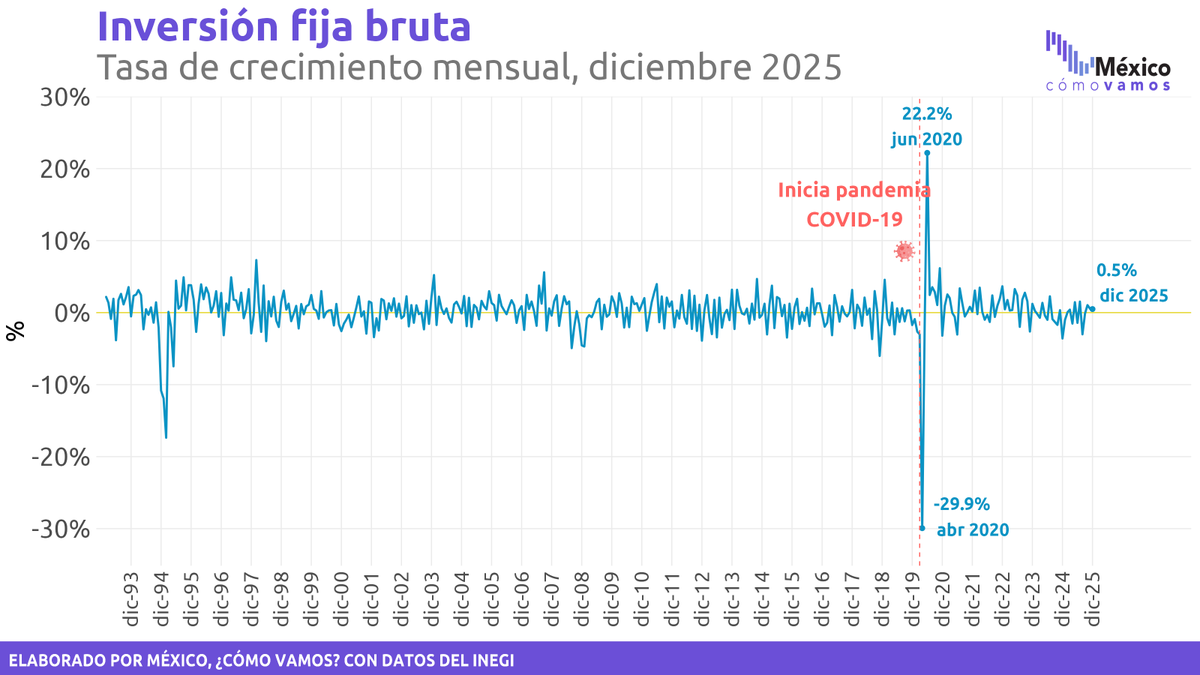
Mar 5
Read 12 tweets
After 3 years of using Claude, I can say it’s the technology that has revolutionized my life.
Here are 10 prompts I use daily that have transformed my day-to-day life and could do the same for you:
(save this)
Here are 10 prompts I use daily that have transformed my day-to-day life and could do the same for you:
(save this)

1. Strategic Daily Planning
Turn chaos into a clear execution plan.
Prompt:
Act as an executive productivity coach.
Help me organize my day using the following information:
- Goals for today: [list goals]
- Tasks: [list tasks]
- Meetings: [list meetings]
- Deadlines: [list deadlines]
Then:
1. Identify my top 3 priorities
2. Suggest a structured schedule
3. Highlight tasks that can be automated or delegated
4. Recommend the highest-impact activities for today.
Turn chaos into a clear execution plan.
Prompt:
Act as an executive productivity coach.
Help me organize my day using the following information:
- Goals for today: [list goals]
- Tasks: [list tasks]
- Meetings: [list meetings]
- Deadlines: [list deadlines]
Then:
1. Identify my top 3 priorities
2. Suggest a structured schedule
3. Highlight tasks that can be automated or delegated
4. Recommend the highest-impact activities for today.
2. Research Assistant
Get structured insights in minutes.
Prompt:
Act as a professional research analyst.
Research the following topic: [topic]
Provide:
1. Key insights
2. Current trends
3. Important statistics
4. Major companies or players involved
5. Opportunities or risks in this space.
Get structured insights in minutes.
Prompt:
Act as a professional research analyst.
Research the following topic: [topic]
Provide:
1. Key insights
2. Current trends
3. Important statistics
4. Major companies or players involved
5. Opportunities or risks in this space.
Mar 5
Read 12 tweets
We have proof that NATTOKINASE can dissolve the "un-dissolvable" clots seen in long COVID.
New research shows how NK breaks down fibrinaloid microclots, the tough structures that usually resist your body's natural defenses.
Here's the breakdown:

New research shows how NK breaks down fibrinaloid microclots, the tough structures that usually resist your body's natural defenses.
Here's the breakdown:


Mar 5
Read 8 tweets
NEW: Seattle Antifa extremist Alex Randall has shared videos and images of firearms training being conducted for transgender members of his new leftist group, "Moto Hooligans."
Randall, also known as "Squid Tips," says his training team is comprised of "entirely trans people" who believe that "armed minorities are harder to oppress."
The group has been conducting their firearms trainings in wooden areas of Washington state.
Randall, also known as "Squid Tips," says his training team is comprised of "entirely trans people" who believe that "armed minorities are harder to oppress."
The group has been conducting their firearms trainings in wooden areas of Washington state.

Mar 5
Read 4 tweets
🔇Entrevista
La carrera nuclear actual es una locura financiada por el complejo militar-industrial.¡Es hora d despertar!☢️⚠️ #GuerraNuclear #SeguridadGlobal
¿Confía Usted En La Élite De Epstein Respecto A Las Armas Nucleares? @kritik_bakis aracılığıylakritikbakis.com/es/confia-uste…
La carrera nuclear actual es una locura financiada por el complejo militar-industrial.¡Es hora d despertar!☢️⚠️ #GuerraNuclear #SeguridadGlobal
¿Confía Usted En La Élite De Epstein Respecto A Las Armas Nucleares? @kritik_bakis aracılığıylakritikbakis.com/es/confia-uste…
¿Confiamos el destino de la humanidad a las "elites de Epstein"? Entre el proyecto #GoldenDome y la integración de la IA en el mando nuclear, el riesgo de un error fatal nunca ha sido tan alto. 📉🛰️ #Política #IA #Nuclear #Armas
No se trata de defensa, se trata de dinero. La doctrina de "lanzamiento tras advertencia" es un suicidio colectivo. Necesitamos un movimiento global contra las armas nucleares como en los años 80. 🌎🚫🚀 #PazMundial #Desarme #ControlDeArmas #Futuro







